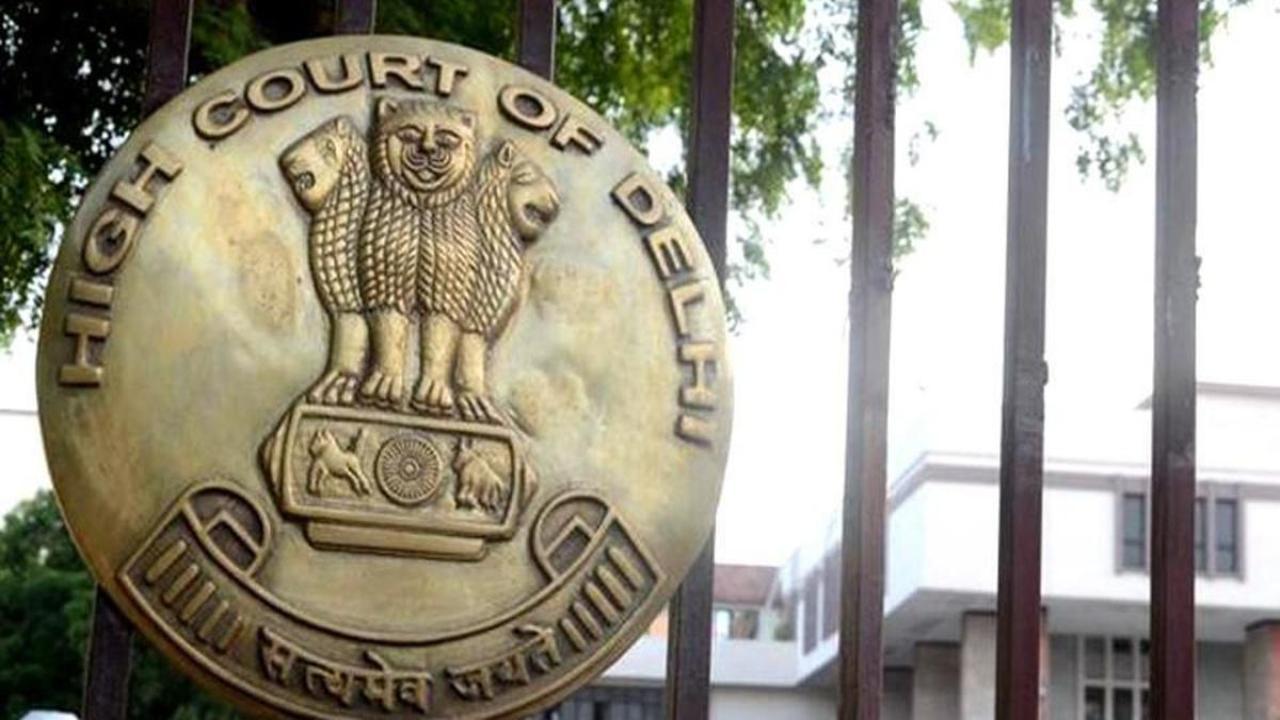While the woman filed an application seeking modification of the existing arrangement of visitation rights given to the man, the ex-husband moved a plea seeking custody of the child on the ground that her relocation to the US with her mother would not be in her welfare and she should be allowed to live in her own country

File Photo
The Delhi High Court has granted permission to a woman to take her five-and a half-year-old daughter to the United States where she is relocating with her second husband, saying the child is stated to be extremely attached to her mother and it will be in her welfare to continue to stay with her mother.
While the woman filed an application seeking modification of the existing arrangement of visitation rights given to the man, the ex-husband moved a plea seeking custody of the child on the ground that her relocation to the US with her mother would not be in her welfare and she should be allowed to live in her own country.
Also read: Uttar Pradesh: Man bludgeons mother to death for refusing to buy him bike, arrested
“Even though, I have no hesitation in agreeing with... (man's counsel) that the child must not be denied the right to regularly interact with the father, the question before this court now is as to whether this right of the child as also of the father can be protected only by compelling the child to stay back in India, when her mother relocates to USA. The answer, in my considered view, is a clear 'No'," Justice Rekha Palli said.
“Today, the technology has advanced so much that regular interactions between two individuals living in different countries or even continents can be easily be maintained through video calls and video conferencing,” the judge said.
The high court said in the last three years, when the world was grappling with the Covid pandemic, interactions through video calls have become the new norm which was also evident from the fact that even when courts today are functioning fully physically, lawyers are being permitted to join through video conferencing. This is only because of the advancements in technology.
The court agreed with the man's counsel that the father, even if he is a non-custodial parent, plays a very important role in the life of the child and no minor should be insulated from the parental touch and influence of any of his parents as both of them play an important role in the development of the child's personality.
However, it said that the man, who voluntarily permitted the woman to take care of the child ever since the age of two and was satisfied with two visitations every month with one of them being an overnight visitation, cannot now be permitted to urge that because the mother wants to relocate to the US, she must leave the child behind in his custody.
“In my view, taking into account that the child has been in the exclusive custody of the mother, to whom she is stated to be extremely attached, it will indeed be in her welfare to continue to stay with her. Any separation of the child from her mother at this stage is likely to cause undue anxiety to her which certainly needs to be avoided,” the judge said.
The high court said the girl will be in a position to regularly interact with her father through video calls, even on a daily basis if she so desires, while being in the US.
“While there can be no doubt that the respondent's rights as a father to regularly interact with the child physically would be affected if the child is permitted to relocate with her mother to USA, I am of the considered view that it would still be in the welfare of the child to remain in the custody of the mother. This curtailment of the father's rights can, to a large extent, be compensated by permitting him to interact through video calls and granting him exclusive custody during the vacations,” the judge said.
The high court directed the woman to ensure the presence of her daughter in Delhi once a year during her summer vacations for at least three weeks when the man will be entitled to have exclusive custody of the child.
It also said if the man travels to the particular city in the US, he would be entitled to meet the child over the weekends subject to the mutual convenience of the parties and the minor.
The man and the woman had got married in 2013 and while she was pregnant, disputes arose and she moved back to her parental house where she gave birth to their daughter in 2017.
In 2018, the estranged couple decided to take divorce with mutual consent and it was agreed upon that while the mother would be having the child's custody, the father will have visitations rights.
In January 2020, the man got remarried. The woman also remarried in April 2021 and was now desirous of relocating to the US along with her daughter.
This story has been sourced from a third party syndicated feed, agencies. Mid-day accepts no responsibility or liability for its dependability, trustworthiness, reliability and data of the text. Mid-day management/mid-day.com reserves the sole right to alter, delete or remove (without notice) the content in its absolute discretion for any reason whatsoever.
 Subscribe today by clicking the link and stay updated with the latest news!" Click here!
Subscribe today by clicking the link and stay updated with the latest news!" Click here!








